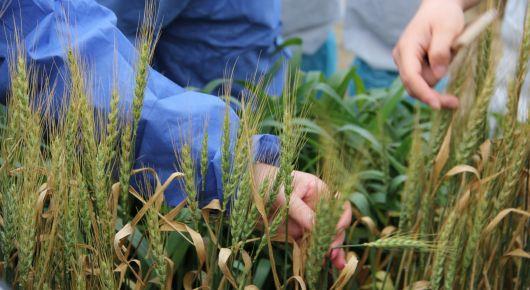FAO promotes electronic phytosanitary certificates at Moscow event

A two-day seminar on the use of electronic phytosanitary certificates and the development of international standards for phytosanitary measures started yesterday on the premises of the Eurasian Economic Commission in Moscow, with key participation of FAO experts.
“FAO, in collaboration with the IPPC Secretariat, will lead the implementation of the International Year of Plant Health at global, regional, and national levels,” said Aghasi Harutyunyan, officer-in-charge for FAO’s liaison office to the Russian Federation, in his introductory remarks referring to the United Nations General Assembly decision from last year.
“With its wide expertise, FAO promotes different approaches to sustainable agriculture, focusing on activities to support and strengthen monitoring and effective responses to transboundary and other types of plant pests and diseases,” Harutyunyan added. “A number of specialized databases and information systems on agricultural production and plant protection back this.”
FAO agricultural officer Piotr Włodarczyk introduced the current work of the International Plant Protection Convention (IPPC) Secretariat, located in FAO headquarters in Rome, and that of a number of bodies and expert groups involved in the development of international standards on phytosanitary measures under the Convention.
Then Nico Horn, director-general of the European and Mediterranean Plant Protection Organization, presented the electronic phytosanitary certificate (ePhyto). Initiated by the IPPC, the ePhyto solution aims to modernize the phytosanitary certification process and holds tremendous potential for the facilitation of safe trade in plants and plant products.
A vital element of this process is the global ePhyto Hub, established as a central exchange system for ePhytos that can be used by all countries linked to it. It allows each national plant protection organization a secure transfer of ePhytos to the hub, and from there to the importing country’s hub “mailbox.”
This eliminates the need for multiple bilateral access agreements and allows participating countries to exchange certificates in a simple way.
15 November 2019, Moscow, Russian Federation
